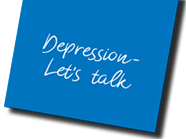What should a police officer know?
Depression affects approximately one in four women and one in eight men during their lifetime and confers an increased risk of self-harm and suicide. About 80-90% of the people dying by suicide had been suffering from a diagnosed mental illness. One may feel low or distressed for a sustained period, but the actual suicidal crisis is mainly a very short-termed state of mind. As well as depression, other factors place a person at risk of suicide, such as substance abuse and psychotic symptoms. Such factors reflect underlying social and biological causes, but a person with these vulnerabilities may only become acutely suicidal following a triggering situation or sudden crisis, such as job less, debt crisis, relationship breakdown, trauma or bereavement.
Police officers are regularly in contact with depressed and suicidal individuals, particularly in the three months leading up to a suicide. There are many possible scenarios of encountering suicidal behaviour in the course of police work, including assisting psychiatric hospitalisations, encountering suicidal behaviour among those in police custody, acute suicide risk situations and rare cases of suicide by police officers.
Officers working in law enforcement are often the first to respond to a mentally ill person in crisis, and often have to make a decision about appropriate referrals for treatment. Professionals in law enforcement provide up to one-third of all emergency mental health referrals. Although these contacts provide opportunities for intervention, few police officers receive adequate training for dealing with such situations.



